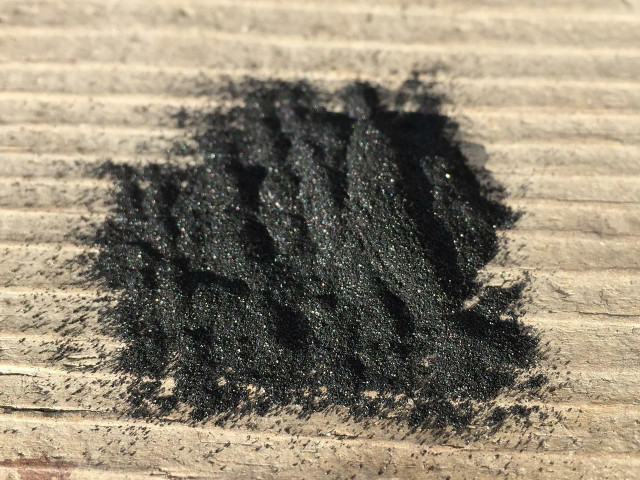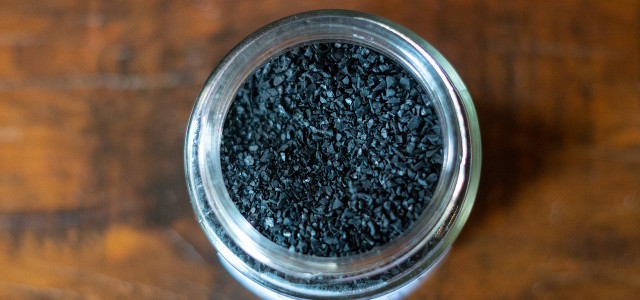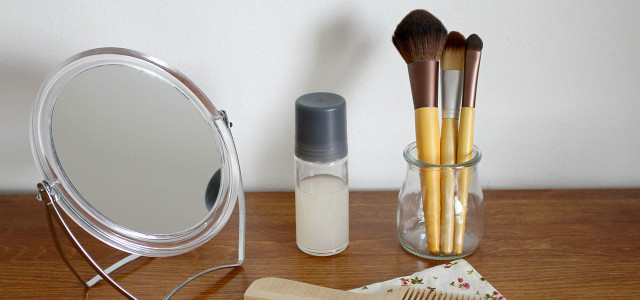Activated charcoal is found in many products. But what is it, and what does activated charcoal do? This ancient substance has many benefits and several abundant myths.
Activated charcoal is an odorless, flavorless, black powder made from burning carbon-rich materials at a high temperature. It is usually sold as a powder or in a capsule as a supplement.
It can come from raw materials like wood or coconut shells. The charcoal is then “activated” with chloride, oxygen, or carbon dioxide to make it finer and more porous.
But what does activated charcoal actually do?
Because of its high porosity and large surface area, activated charcoal is an adsorbent rather than absorbent, meaning that gasses and liquids stick to it as they pass through, as opposed to liquids. This is how activated charcoal can enter the body without being absorbed by the gut, and is often used to adsorb ingested toxins that have been consumed.
While activated charcoal has been used since ancient times, it has recently regained popularity and can now be found in almost every supermarket in foods, some kinds of toothpaste and medicines.
What Does Activated Charcoal Do? 7 Uses

(Foto: CC0 / Pixabay / drfuenteshernandez)
There are many things that activated charcoal can do in and to your body. It has been linked to several health benefits, such as being able to:
1. Reduce gas and bloat: Consuming activated charcoal is an excellent way to decrease gas and bloating. The activated charcoal attracts gases and eliminates them from the body.
2. Improve diarrhea: Similar to how activated charcoal can improve gas and bloating, it can also help to improve diarrhea as it attracts and expels ingested toxins and bacteria in the body which are precursors for diarrhea.
3. Improve kidney function: Research into renal failure and activated charcoal suggest it can decrease waste, taking a load off the responsibility of the kidneys. This can be especially beneficial for individuals with chronic kidney disease. However, we do not recommend treating kidney disease or dysfunction at home. Make sure to talk to your doctor first.
4. Reduce TMAU: Trimethylaminuria (TMAU), also known as fish odor syndrome, is a genetic disease where the compound trimethylamine (TMA) builds up in the body. TMA smells like rotting fish, resulting in individuals’ sweat, breath, and urine having the same odor. Activated charcoal has been shown to help reduce TMA and improve the quality of life of those suffering from TMAU.
5. Reduce cholesterol: Activated charcoal has been shown to decrease bad cholesterol and increase good cholesterol. The activated charcoal binds to bad cholesterol in the body and prevents it from being absorbed.
6. Air and water filtration: Activated charcoal can be used as an adsorbent to remove toxic materials from both liquids and gases, making it an effective purifier for both water and air.
7. Deodorant: Activated charcoal adsorbs the odor-generating compounds of sweat and can be used as a natural deodorant, helping eliminate body odor.
Important: Activated charcoal can interfere with some medicines, so always consult a physician before use.
5 Activated Charcoal Myths



(Foto: CC0 / Pixabay / mommyandlove)
Although there are many proven and safe uses for activated charcoal, there are also some uses that could be harmful, especially when used in place of seeking medical attention. Some beauty products also claim beneficial results from the addition of activated charcoal, which could lead to disappointment or damage. Here a five of the most common activated charcoal myths:
1. Poison control: Activated charcoal has been historically used in treating overdoses. Although there is evidence that consuming activated charcoal can help absorb drugs or poisons from the body, and reduce their effects, it may not be effective unless consumed within one hour. It also depends on the type of drug ingested. Furthermore, it’s not recommended to treat a drug overdose at home. Go to the hospital for professional help instead.
2. Teeth whitening: Evidence is severely lacking regarding activated charcoal’s ability to whiten teeth. In fact, some studies have found that it does not whiten teeth at all. Further scholars have questioned whether activated charcoal is even safe for dental use. Some claim the substance can damage the teeth through enamel abrasion. Further research is needed to confirm both the safety and efficacy of activated charcoal in dental care. In the meantime, try one of these whitening home remedies.
3. Hangover cure: Activated charcoal does not effectively absorb alcohol, so there is no reason why it would be an effective hangover cure. There are other natural ways to get over a hangover quickly.
4. Acne treatment: Although many skin products market activated charcoal as an effective treatment for blemishes, scientific research does not back this up. In fact, activated charcoal can potentially worsen the appearance of skin as it can permanently enlarge pores, and cause scarring and hypo-pigmentation. There is evidence that activated charcoal draws bacteria, toxins, chemicals, dirt, and micro-particles to the surface of the skin. However, there are other substances that do the same without risking damage to the skin. Using a simple face wash should do the trick. Read more in our guide on charcoal peel-off masks.
5. Dandruff treatment: Evidence does not show that activated charcoal can be used to reduce dandruff. While you may find activated charcoal included in some hair and scalp products, this is not an ingredient confirmed to be effective or safe.
A very popular kind of activated charcoal is one made from coconut shells. There are several reasons why advocates prefer coconut shells over other sources, including ecological considerations as well as efficacy. Read more in our guide Coconut Charcoal Benefits: Are They Real?
Read more:
- Benefits of Ginger: Uses, Health Effects, and Recipes
- Ashwagandha Health Benefits & Drawbacks
- Hot Lemon Water: Recipe and Benefits for Your Health
Important Information regarding Health-related Topics.
** Links to retailers marked with ** or underlined orange are partially partner links: If you buy here, you actively support Utopia.org, because we will receive a small part of the sales proceeds. More info.Do you like this post?








